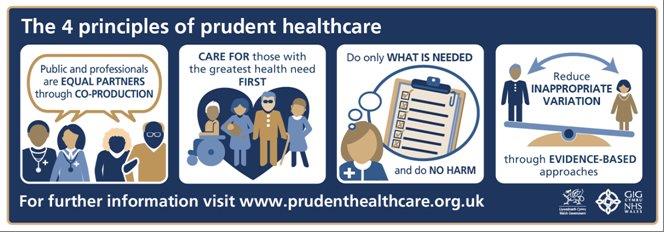What really matters in healthcare?
Two of my dearest friends are living with metastatic cancer. We talk as close friends do and they have both often asked me how to have a conversation with the healthcare professionals looking after them so that they can make the decisions they need to make to live as well as they can for as long as they can. Talking to my friends in this way has brought the issue of shared decision making up close and personal in a way I have not previously experienced. As a GP I like to think that I am always considering the needs and goals of the people under my care and I am sure I am no different to any other clinician. However, despite all of our best intentions we can get it wrong and this is because our perspective is so very different from that of our patients. We are focused on clinical outcomes...has the tumour reduced on the scan, what is the average time to progression for a given treatment? My mates want to know this too...but also if they can be well enough to walk, run, play, ski, enjoy family holidays.
These perspectives are not mutually exclusive and can be brought together if we start to systematically marry up clinical and patient reported (functional) outcomes.
Amazingly perhaps, we do not even measure outcomes
systematically, and have certainly not incorporated patient-reported outcome
measures which really raise the bar of expectation in terms of what healthcare
interventions should be achieving.
Why should we measure outcomes that matter to patients?
Well, if we do not ask people what matters to
them, help them decide on realistic health goals and then achieve them, we are
surely failing in healthcare. Here's Atul Gawande again from Being Mortal,
‘If to be human is to be limited, then the role of caring professions and institutions – from surgeons to nursing homes – ought to be aiding people in their struggle with those limits. Sometimes we can offer a cure, sometimes only a salve, sometimes not even that. But whatever we can offer, our interventions, and the risks and sacrifices they entail , are justified only if they serve the aims of a person’s life.’
There is also an urgency about the work we need to do to make
services sustainable and improve the patient experience. We have a duty as clinicians to be stewards of precious resource in the system, as far as we are able. Managers and accountants have a responsibility to listen to clinical advice on how best to achieve that.Clinicians and
patients need a set of tools now to help them make wise choices together, not
just about individual treatment decisions, but also about the way we design and
deliver healthcare to the population. Having access to outcome
measures that matter to patients is one of those tools.
Outcome can be defined as ‘a final product or end result’, a
‘consequence.’
Much of what we currently measure therefore are not true
outcomes but indicators, proxies or process measures often used as a benchmark
of organisational performance. Our system of measurement must mature so that we
are assessing the success of our healthcare against outcomes that matter to
patients. There are a number of key elements to this:
1.
Measuring the effect of treatment and
interventions from the individual’s perspective especially to include
functional outcomes, wellbeing and adverse effects of treatment.
Eg what happened to other people like me
who had this intervention? What information do I need to help me make a
decision about my healthcare?
Understanding and explaining risks and
benefits of undertaking vs not undertaking an intervention can be very
difficult for patients and professionals alike
2.
The experience of the healthcare provided. What
was it like to be a patient?
3.
Were the individual’s health goals met taking
into account an individual situation and shared decision making with the health
care professional, having helped the individual to navigate the evidence-based
guidelines and decide together how best to achieve what matters most to them?
The effects of a shift from organisational outcomes to
patient-focused outcomes can lead to:
Comparisons with
other centres leading to outcome improvement (inc research collaboration)
Communities of practice/sharing and spreading innovation and
improvement.
Assurance about
patient safety
Informs resource allocation and service design across the
whole system – through an assessment of the value of every single event from
the patient’s perspective
Triangulate with
variation and other data – analysis of outcome and cost variations when
done together can reduce potential
overuse of resources in one area and inform reinvestment in areas which have a
greater impact on improving patient outcomes.
Ultimately, systematically measuring outcomes (alongside costs) allows us to assess the value of what we are delivering for our patients and act accordingly to improve that value - in every sense of the word. This is why I am sold on the idea.
Ultimately, systematically measuring outcomes (alongside costs) allows us to assess the value of what we are delivering for our patients and act accordingly to improve that value - in every sense of the word. This is why I am sold on the idea.


Comments
Post a Comment